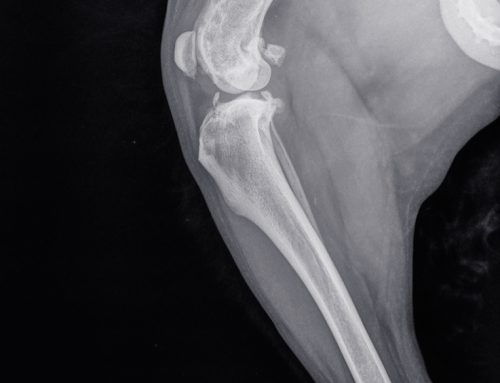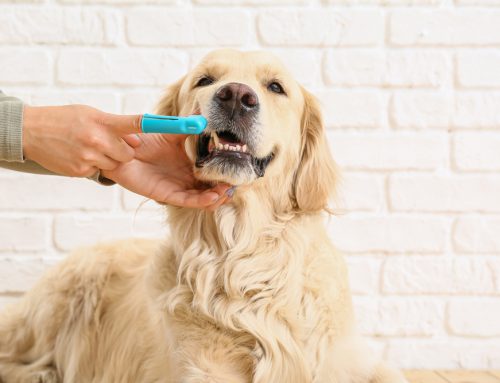Vaccinations are an important part of your pet’s preventive health care plan, and the most cost effective way to protect your pet against many diseases. Our Scripps Ranch Veterinary Hospital team explains the importance of keeping your pet’s vaccines up to date, and the diseases that vaccinations help prevent.
Why should I vaccinate my pet?
Vaccines trigger a protective immune response, preparing the immune system to fight future infections caused by pathogens, such as bacteria and viruses. They stimulate the immune system to produce antibodies, which identify and destroy disease-causing organisms that enter the body. Important reasons to keep your pet’s vaccines up to date include:
- Prevent illness — Vaccines protect your pet from many dangerous diseases.
- Prevent disease spread — Vaccines can prevent disease spread between pets, from wildlife to pets, and from pets to people.
- Avoid veterinary bills — Vaccines help prevent diseases that can lead to expensive veterinary bills.
- Obey the law — Many local and state ordinances require certain vaccinations for pets.
What is the difference between core and non-core vaccines for pets?
Core vaccines are those recommended for all pets. The American Veterinary Medical Association (AVMA) defines core vaccines as those “that protect from diseases that are endemic to a region, those with potential public health significance, required by law, highly infectious, or those posing a risk of severe disease. They have clearly demonstrated efficacy and safety, and exhibit a high enough level of patient benefit and low enough level of risk to justify their use in the majority of patients.” Non-core vaccines are those recommended by a veterinarian based on the pet’s lifestyle.
What are core vaccines for dogs?
Core vaccines for dogs include:
- Rabies — Rabies is a viral disease passed by an infected animal’s bite, and is most commonly found in wildlife, such as bats, foxes, raccoons, and skunks, in the United States. Rabies attacks the central nervous system and is fatal once signs, which include aggression, behavioral changes, excessive drooling, paralysis, and seizures, occur.
- Distemper — Distemper is a viral disease that attacks the respiratory, gastrointestinal, and nervous systems of dogs and puppies. The virus is transmitted by direct contact and through shared food, water, and equipment. Signs include fever, nasal discharge, coughing, lethargy, and vomiting.
- Parvovirus — Parvovirus, which is a viral disease that attacks the gastrointestinal tract, is most common in puppies younger than 4 months. The disease is transmitted by direct contact and contact with contaminated feces, environments, and equipment. Signs include fever or low body temperature, abdominal pain, vomiting, and diarrhea, which is often bloody.
- Infectious canine hepatitis — Infectious canine hepatitis is caused by an adenovirus that is spread through contact with the urine, nasal secretions, and ocular discharge from an affected dog. Signs include fever, depression, corneal opacity, cough, and nasal and ocular discharge, and vomiting, diarrhea, and jaundice in severe cases.
- Parainfluenza — Parainfluenza is a contagious ribonucleic acid virus that causes respiratory disease in dogs and is one of the most important pathogens that causes kennel cough. The virus is transmitted through direct contact, aerosolized droplets, and contact with contaminated environments and equipment.
What are core vaccines for cats?
Core vaccines for cats include:
- Rabies — Rabies is also a core vaccine for cats.
- Feline herpesvirus — Also known as feline viral rhinotracheitis, feline herpesvirus type 1 is a major cause of upper respiratory disease in cats. The virus is transmitted through an infected cat’s saliva, nasal discharge, and ocular secretions, and signs include nasal discharge, sneezing, and conjunctivitis.
- Feline calicivirus — Feline calicivirus is an important cause of respiratory infection and oral disease in cats. Infection is spread through an infected cat’s nasal secretions, ocular discharge, and saliva, and signs include sneezing, nasal congestion, conjunctivitis, and oral ulcerations. The virus can survive up to one week in the environment.
- Feline panleukopenia — Feline panleukopenia is a viral disease caused by the feline parvovirus. Infection is spread in the urine, feces, and nasal secretions of infected cats, and signs include depression, inappetence, fever, vomiting, nasal discharge, and severe diarrhea.
- Feline leukemia virus (FeLV) — FeLV is a common infectious disease shed in the saliva, nasal secretions, urine, feces, and milk of infected cats. FeLV is the most common cause of cancer in cats and can hinder an affected cat’s infection fighting ability. Signs include weight loss, decreased appetite, poor coat condition, enlarged lymph nodes, and recurrent infections.
What are non-core vaccines for dogs?
Non-core vaccines for dogs include:
- Leptospirosis — Leptospirosis is a bacterial disease that is most commonly transmitted through urine-contaminated water. Signs include fever, lethargy, and jaundice.
- Lyme disease — Lyme disease is transmitted by ticks, causing signs such as lethargy, fever, enlarged lymph nodes, and joint pain.
- Bordetella — Bordetella bronchiseptica is a bacterium that is a common pathogen causing kennel cough. Common signs include fever, lethargy, and cough.
- Canine influenza — Canine influenza is a viral disease spread by contacting infected dogs and contaminated environments and equipment. Signs include coughing and sneezing.
What are non-core vaccines for cats?

Non-core vaccines for cats include:
- Bordetella — B. bronchiseptica causes respiratory disease in cats, and is shed in infected cats’ nasal secretions and saliva. Signs include mild sneezing, coughing, nasal and ocular discharge, and fever.
- Chlamydia — Chlamydiosis is a bacterial disease that is spread through direct contact or contact with contaminated environments and objects. Signs include sneezing, watery eyes, coughing, nasal discharge, and fever.
Keeping your pet vaccinated protects them against many dangerous diseases. If you would like to schedule an appointment to get your pet vaccinated, contact our Scripps Ranch Veterinary Hospital team, so we can ensure they are protected.





Leave A Comment